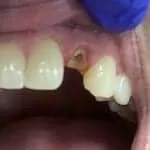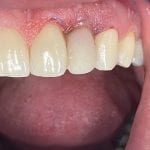Emergency Dental Care
Emergency Care
ACCESS OF CARE
We are available for all emergency visits and are accessible at all time
When we treat emergency patients, we believe that the most important thing is the availability of a professional and their willingness to provide the patient with direction to resolve their emergency. We begin this process in a timely manner by connecting you to an expert at BCOH.
Simplicity
One of the most frustrating things for patients is trying to get access to proper care and instead, being met with limitless recorded phone options. At BCOH the process is straightforward- a human being is simply one phone call, one email, or one text away. We provide you with the ability to get proper access to emergency care at your fingertips.
Types of Emergencies
The types of emergencies we typically encounter often include a traumatic situation such as; a fall, a broken filling, tooth sensitivity, gum swelling, or jaw and facial pain.
Types of Emergencies
1- The Dangers of Broken Tooth Filling and How to Prevent Them
What Is a Broken Tooth Filling?
A broken tooth filling can be a big problem. It can cause pain, infection, and sometimes even lead to tooth loss.
It is a restoration that covers the exposed part of the tooth after it has been chipped or broken. It is usually made up of porcelain or composite material and it is cemented in place with dental cements.
A broken tooth filling may be necessary if you have a chipped or cracked tooth that has exposed dentin (the tissue inside the tooth). If your dentist suspects that there may be an infection in the area, they will likely recommend a root canal treatment first before performing a dental filling procedure.
What Causes a Tooth to Crack or Break?
Cracks and breaks in teeth are common. They can be caused by a variety of factors such as tooth decay, trauma, or grinding.
There are two types of cracks in teeth: vertical and horizontal. Vertical cracks occur when the tooth is under constant pressure and stress. This type of crack is often caused by tooth decay or trauma to the tooth. Horizontal cracks are caused by the teeth grinding against one another all day long which happens when people clench their jaws while they sleep or chew gum too hard.
How Can I Prevent My Tooth from Breaking?
The key to preventing your teeth from breaking is to avoid biting down on hard or brittle foods, such as ice cubes, hard candies and nuts. If you have braces, make sure you brush your teeth after every meal.
2- Tooth Sensitivity and How to Treat It
What is Tooth or teeth Sensitivity?
Tooth sensitivity is a common dental problem that can be caused by many things. Tooth sensitivity can be caused by the following:
1. Brushing too hard
2. Using an abrasive toothpaste or mouthwash
3. Inadequate brushing time
4. Poor oral hygiene (poor brushing technique)
5. Dry mouth
6. Eating cold foods or drinking cold drinks
7. Stress and anxiety
8. Other dental problems (cavities)
What are the Causes of Tooth Sensitivity?
Tooth sensitivity is the feeling of pain when something touches the tooth. It can be caused by a number of factors, from tooth decay to gum disease.
Tooth sensitivity is a common problem and can be caused by many things such as tooth decay, gum disease, or even an old filling coming loose. Tooth sensitivity causes discomfort when eating or drinking hot or cold foods and drinks.
How to Prevent Sensitive Teeth?
The most common cause of sensitive teeth is a tooth that has been eroded by acidic foods and drinks, such as coffee, tea, and soft drinks. This can happen when the tooth’s enamel becomes worn down by these substances to the point where it can no longer protect your tooth from acid.
To prevent sensitive teeth, you should avoid consuming these types of things. You should also brush your teeth twice a day with fluoride toothpaste. If you have an exposed root canal or nerve in your tooth, you may want to consider getting it treated by a dentist because this can lead to pain and sensitivity in the tooth.
How to Get Rid of Tooth Sensitivity Pain?
Tooth sensitivity is a common condition that can be also caused by tooth grinding, deep teeth cleaning, or an overactive immune system.
There are many ways you can reduce tooth sensitivity pain. The first way is to avoid the triggers that may cause your tooth to become sensitive. This includes:
– Brushing your teeth too hard
– Eating sugary foods
– Drinking alcohol without brushing your teeth afterwards
– Tooth grinding or clenching your jaw while sleeping.
The second way is to take medication prescribed by your dentist. This may include a topical gel or mouth rinse with fluoride in it. You should also talk to your dentist about what kind of dental work you need done if you have any cavities, cracks, or other damage in the tooth’s enamel.
3- Gum Swelling
What is Gum Swelling?
Gum swelling, also known as acute gingivitis, is a painful condition that can be caused by a number of different things.
The lining of the mouth is called the mucosa, and it includes the gums. The mucosa can swell which is called gum swelling or abnormally enlarged gum.
What Causes Gum Swelling or abnormally enlarged gum?
It can happen from brushing too hard, not brushing your teeth enough, smoking, using braces or dentures, or even recently getting your wisdom teeth out. It’s important to keep this condition in check so you don’t experience future problems with it.
Gum swelling can be caused by a number of other factors such as:
-Infection
-Inflammation
-Trauma
-Disease
-Exposure to chemicals or toxins
Gum Swelling can also be cause by an allergic reaction to toothpaste or mouthwash.
This condition can be treated with over-the-counter medications and antibiotics. If this does not work, then surgery may be needed.
What are the Symptoms of Gum Swelling?
The pain associated with gum swelling is usually intermittent and dull in nature. It can also be accompanied by a redness of the gums and mouth lining as well as difficulty chewing food. In some cases, the pain may also worsen after eating hot or spicy foods.
A person who has been experiencing any of these symptoms should visit a dentist right away for diagnosis and treatment.
How to Treat Gum Swelling at Home?
Home remedies for swollen gums are really easy to prepare and use. They can be prepared in just a few minutes and used as needed.
You can use ice or cold water to reduce the swelling from your gum. You should also avoid hot foods and beverages as they can irritate the gums.
If you want to add a little flavor, try rinsing your mouth with salt water. If you are using raw garlic, make sure that you brush your teeth afterwards because it has an unpleasant taste.
You should also avoid smoking or chewing tobacco because these habits can cause gum inflammation and swelling too.
How to Prevent Gum Swelling from Occurring in the Future?
There are a few things you can do to prevent gum swelling from occurring in the future. First, be sure to brush your teeth regularly and floss daily. This will help remove plaque and bacteria from your teeth and gums, which can cause inflammation. Additionally, eat a healthy diet and avoid smoking, as both of these can contribute to gum disease. Finally, see your dentist regularly for checkups and cleanings. If you have any concerns about your gum health, be sure to discuss them with your dentist so that they can help you find the best way to prevent gum swelling in the future.
4- Jaw & Facial Pain
Jaw & Facial Pain; Types, Causes and remedies?
Jaw and facial pain is a common disorder that can be caused by many factors. The most common cause of jaw and facial pain is TMJ dysfunction, which can be caused by grinding teeth, clenching teeth, or a problem with the joint in the jaw.
Pain in the jaw and face can also be caused by an injury to the head or neck, such as whiplash. Other causes of this type of pain include arthritis, infection, cancer and trigeminal neuralgia.
There are many remedies for this condition including medication to help relax muscles around the jaw joint and reduce inflammation; physical therapy; acupuncture; wearing a mouth guard at night to stop teeth grinding; avoiding foods or drinks that may cause problems such as caffeine or alcohol; and taking over-the-counter drugs.
What is causing Jaw & Facial Pain
Jaw and facial pain can be caused by a number of different things. Some of these are:
– Temporomandibular joint disorder (TMJ)
– Bruxism
– TMD, or temporomandibular joint dysfunction
– Headaches
– Teeth grinding (bruxism)
– Dental problems, such as cavities or gum disease
– Stress
What are the Symptoms of Jaw & Facial Pain
The following is a list of common symptoms that may indicate a jaw or facial pain:
Headache
Tenderness in the jaw
Difficulty opening the mouth
Loss of taste sensation on one side of the tongue
How to Treat Your Jaw & Facial Pain Naturally
If you suffer from chronic jaw pain, you may be surprised to learn that it is possible to treat your pain naturally. There are many things you can do at home to help alleviate the pain.
Treating your jaw and facial pain naturally is the best way to find relief.
This article will help you understand what causes jaw and facial pain, what you can do about it, and how to find relief from the discomfort of chronic jaw pain.
In severe situation you can call BCOH, we are expert and we have helped many patients.
Preventing Emergencies
We like to prevent emergencies by encouraging our patients to get cleanings, regular check-ups and by encouraging good oral hygiene. At BCOH we work hard to precede the emergencies and to provide preventative care.




In case of Emergencies
However, emergencies such as a fall, tooth pain, or infection do occur. If you have an emergency and need to reach us, give us a call at 617-536-4620.
Often we can reassure patients and provide appropriate instruction over the phone.
Speaking to a professional by phone, email, or text can provide comfort.
In this day and age the ability to consult with patients with our virtual visit allows us to see them right away, see their condition and establish a working diagnosis.
That is where selfies with your smartphone come handy. Having someone take a picture while you take 2 spoons and pulling your chicks back begins the examination process.
Frequently Asked Questions | Emergency Dental Care in Boston
Q: What qualifies as a dental emergency?
A: A dental emergency includes severe tooth pain, broken or chipped teeth, knocked-out teeth, infections, or swelling that needs immediate attention.
Q: Can I walk in for emergency dental care, or do I need an appointment?
A: While walk-ins are welcome, we recommend calling ahead so we can prepare and minimize your wait time.
Q: What should I do if I knock out a tooth?
A: Call us right away. If possible, gently place the tooth back in the socket or store it in milk until you arrive. Prompt treatment improves the chance of saving the tooth.
Q: Do you offer same-day emergency dental appointments?
A: Yes, we offer same-day and next-day emergency appointments to treat urgent dental issues as quickly as possible.
Q: What if I don’t have dental insurance?
A: We provide flexible payment options and will work with you to ensure you receive the urgent care you need.
Q: Are emergency dental services available after hours or on weekends?
A: Call our office to speak with our team. We do our best to accommodate urgent cases and will provide guidance for after-hours care when necessary.
